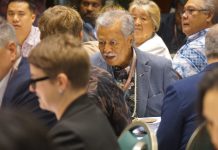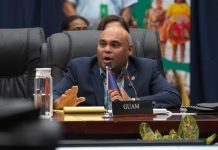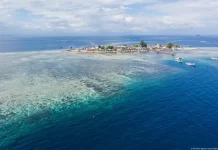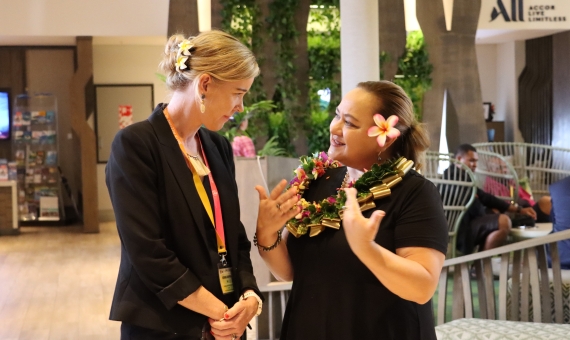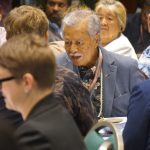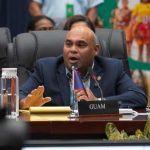The role of development partners and donors in strengthening the ability of Pacific communities to absorb the devastating blows of the triple planetary crisis of climate change, biodiversity, and pollution has been highlighted at the first Pacific Meteorological Council (PMC) Development Partners and Donors Engagement Meeting (DPDEM-1).
Opened on the heels of the Sixth Pacific Met Council Meeting (PMC-6) which ended on Wednesday, DPDEM-1 further facilitates collaboration, coordination and networking among development and donor partners and National Meteorological Hydrological Services (NMHSs) on PMC priorities.
Held at Sofitel in Nadi, the meeting was opened by the Director General of the Secretariat of the Pacific Regional Environment Programme (SPREP), Sefanaia Nawadra and the Secretary General of the World Meteorological Organisation (WMO), Professor Petteri Taalas.
“Pacific communities are at the forefront of the triple planetary crisis of climate change, biodiversity, and pollution and it is why we have been given a special case under the UN Conventions that address the environment,” said Nawadra.
“Our leaders have always taken the lead on ways that address the triple planetary crisis. In their wisdom, they have put together the 2050 Strategy for the Blue Pacific Continent which represents the ongoing commitment of the region to work together as one. It’s a Strategy that’s not just for Pacific countries, or for CROP agencies, it’s a strategy for everyone who work within these jurisdictions. All of us, including development partners and donors must make sure our work fits into what the 2050 Strategy wants. The same applies to SPREP and any other agency who wants to work in the Pacific.”
Director General Nawadra also highlighted the value of existing structures and partnerships.
“Our gathering today is very important in our efforts to continue to strengthen these structures and partnerships. A lot of them are based on thematic themes but some are starting to look into the integrated nature of these partnerships. What has happened here with the PMC-6 meeting during the last few days is an example of that.
“Having the Met Services, NDMOs, all the partners, the private sector and everyone in the same room is something we need to continue to work on to be able to serve our communities better.”
The Development Partners and Donors Engagement Meeting precedes the third Pacific Ministerial Meeting on Meteorology (PMMM-3) scheduled for Friday 18 August 2023. The meetings attended by Government Ministers, members of the PMC, officials from the SPREP’s member countries and territories, development partners, Council of the Regional Organisations in the Pacific (CROP), United Nations’ agencies, collaborating organisations and institutions are guided by the theme: “Sustaining Weather, Climate, Water and Ocean Services for a Resilient Blue Pacific.”
All the meetings are supported by a strong partnership between the Government of Fiji, SPREP, WMO and other key partners.
The Secretary General of WMO, Prof. Petteri Taalas, reminded that climate change continues to negatively impact our planet, as recently revealed in the State of the Global Climate report.
He referred to extreme weather events such as droughts, cyclones, floods, heatwaves and fires ravaging different nations across the globe.
“These extreme weather events which has affected many millions of people is unfortunately the harsh reality of climate change and a foretaste of the future,” he said. “Our gathering here today once again highlights the need to work together, more than ever on safeguarding our communities against a changing climate by investing in both adaptation and mitigation measures.”
The Pacific Region has made significant investments in enhancing weather, climate, hydrological, ocean and related development services resulting in strengthening the capability and capacity of the National Meteorological and Hydrological Services (NMHSs).
Additionally, significant investments are needed for the region to achieve full potential in the provision of such services, which has been mobilising several stakeholders including the Pacific Island Countries and Territories (PICTs), donors, development partners on scoping, resources mobilisation and implementing programmes and projects in the region.
Effective, inclusive and sustainable coordination among such a growing number of donors and partners engaged in climate change, disaster risk reduction and other related disciplines is crucial to ensure accurate, timely, action-oriented and people-centered forecasts and warnings for extreme and high impact hydro-meteorological events.
The Development Partner and Donor Engagement Meeting aims to strengthen coordination and synergise efforts, prioritising the needs of the Pacific region, and supporting sustainable development, resilience development and preparedness in the face of hydro-meteorological disasters. A common agreement on the basis of the PMC Development Partner Coordination Mechanism to sustain coordination efforts is also on the agenda.
The Sixth Pacific Meteorological Council (PMC-6), the First Development Partners and Donors Engagement Meeting and the Third Pacific Ministerial Meeting on Meteorology (PMMM-3) are held in Nadi, Fiji respectively from 14 – 18 August 2023. They follow a range of pre-PMC meetings held in Nadi Fiji from 07 – 12 August 2023.
SOURCE: SPREP/PACNEWS


